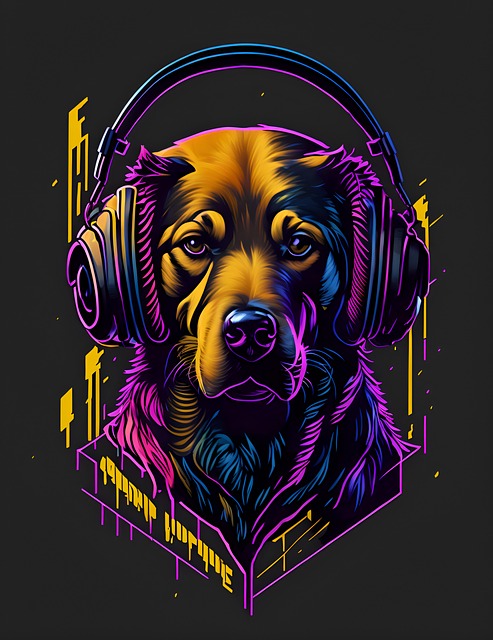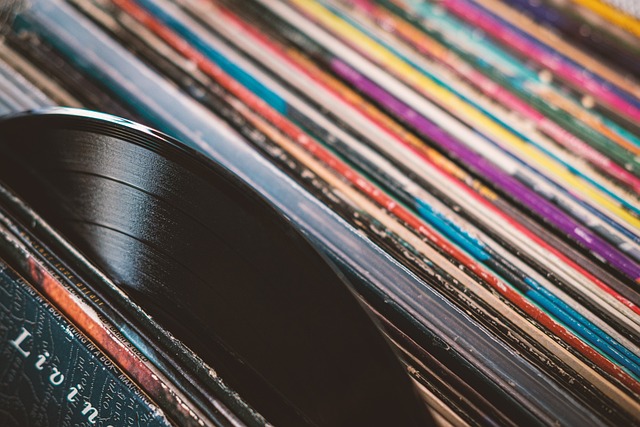AI music tools are transforming the creative process for ai musicians, offering a democratized approach to production with advanced algorithms analyzing vast datasets. These tools automate tasks, generate initial compositions, and provide unique ideas, fostering creativity, expediting production times, and unlocking new sonic possibilities for both professionals and aspiring artists worldwide. While AI-powered composition and collaboration revolutionize the industry, breaking down traditional barriers, it also raises ethical concerns about copyright, ownership, and human artist displacement, requiring a balance between technology integration and preserving human creativity.
“Step into the future of music creation with our comprehensive guide on AI music tools. This blog is a treasure trove of knowledge designed to empower musicians and producers alike. Discover how Artificial Intelligence is revolutionizing the industry, offering unprecedented creative freedom and efficiency gains. From composition to collaboration, we explore the endless possibilities. Uncover trends shaping the way AI musicians work and delve into ethical considerations as we navigate this exciting new era.”
- Understanding AI Music Tools: A New Era for Musicians
- Benefits of AI in Music Production: Enhancing Creativity and Efficiency
- Exploring AI-Powered Composition and Collaboration Techniques
- The Future of AI Musicians: Trends and Ethical Considerations
Understanding AI Music Tools: A New Era for Musicians

Artificial Intelligence (AI) music tools are ushering in a new era for musicians, transforming the way they create and produce their art. These innovative technologies offer an array of capabilities, from generating melodies and harmonies to enhancing sound quality and creating unique instrument sounds. AI musicians can now benefit from advanced algorithms that analyze vast musical datasets, enabling them to compose, arrange, and even produce entire tracks with minimal human input.
For many, this represents a significant shift in the music industry, where creative processes are increasingly democratized. AI tools empower both seasoned professionals and aspiring artists by providing access to cutting-edge technology previously reserved for major studios. This new era of musical creation promises to foster creativity, expedite production times, and open doors to unprecedented sonic possibilities for ai musicians worldwide.
Benefits of AI in Music Production: Enhancing Creativity and Efficiency

AI is transforming music production by offering a wealth of benefits that enhance both creativity and efficiency for ai musicians. One of the key advantages is its ability to automate repetitive tasks, allowing artists to focus more on the creative aspects of their work. For instance, AI-powered tools can generate initial melodies, harmonizations, or even entire compositions based on user input, serving as a powerful starting point for musicians.
Furthermore, these tools often come equipped with sophisticated algorithms that analyze vast musical datasets to offer unique and unexpected ideas. This not only saves time but also broadens the creative horizons of ai musicians, encouraging them to explore new sounds and styles. By harnessing the potential of AI, music producers can streamline their workflows, increase productivity, and ultimately push the boundaries of artistic expression.
Exploring AI-Powered Composition and Collaboration Techniques

AI-powered composition and collaboration are transforming the way musicians create and produce music. By leveraging advanced algorithms, AI tools can help composers craft intricate melodies, harmonies, and rhythms with unprecedented ease and efficiency. These tools often come equipped with vast libraries of musical data, allowing them to generate unique and diverse sounds that inspire and complement human creativity.
For ai musicians, these techniques open up new avenues for artistic expression. They can collaborate with AI models in real-time, experimenting with different styles and genres without the constraints of traditional composition methods. This symbiotic relationship between human intuition and machine learning fosters a dynamic creative process, pushing the boundaries of what’s possible in music production.
The Future of AI Musicians: Trends and Ethical Considerations

The future of AI musicians is an exciting prospect, with continuous advancements in technology opening up new possibilities for creative expression. AI-powered music tools are increasingly becoming accessible, allowing musicians to explore and experiment with innovative sounds. These tools can generate melodies, harmonies, and even entire compositions, providing a wealth of resources for artists to draw from. The trend towards AI integration in music production is not only reshaping the industry but also challenging our notions of creativity and artistic authorship.
Ethical considerations, however, play a significant role in this evolving landscape. As AI musicians gain prominence, questions arise regarding copyright, ownership, and the potential displacement of human artists. It’s crucial to strike a balance between leveraging the benefits of AI technology and preserving the value of human creativity. The music industry must navigate these trends carefully, ensuring that AI enhances rather than replaces the unique contributions of musicians while fostering an environment where both human and artificial talent can thrive.
AI music tools are revolutionizing the way musicians create and produce, offering unprecedented opportunities for innovation. By harnessing the power of artificial intelligence, artists can enhance their creativity, streamline workflows, and explore new musical frontiers. As we look towards the future, understanding the ethical implications and embracing AI-powered collaboration will shape the landscape of music production, ensuring that ai musicians continue to push boundaries and captivate audiences worldwide.
